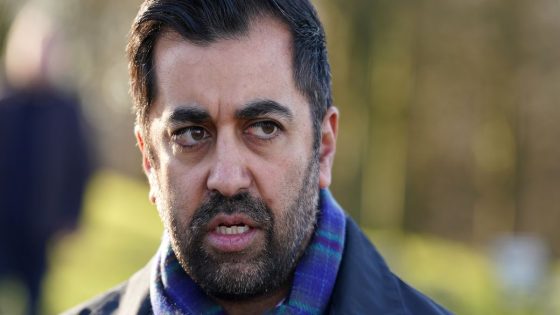PARIS — Three hours before kickoff of Israel’s first Olympic men’s soccer match in 48 years, the mood outside the Parc Des Princes was anything but festive.
Uniformed French police officers easily outnumbered the few dozen spectators milling around on Wednesday evening waiting for the stadium doors to open.
There were police vans blocking roadways leading to the stadium and another 15 lined up in a row alongside the stadium’s north side. Throngs of police patrolled the stadium grounds by foot, most holstering guns and wearing bulletproof vests.
The police presence showed that French Minister of the Interior Gérald Darmanin wasn’t bluffing Tuesday when he vowed to create an “antiterrorism perimeter” around Israel’s opening match against Mali. Darmanin during a French TV interview promised to have 1,000 police standing guard in preparation for potential clashes between Israeli fans and pro-Palestinian activists or in case of an attack.
While everything was quiet well before kickoff, the number of police was the latest sign that this could be an unusually tense, geopolitically charged Olympics. Paris 2024 begins with Russia at war with Ukraine and Israel involved in a bloody conflict in Gaza.
On the morning of October 7, Hamas launched an unprecedented surprise attack in response to what it calls Israeli crimes against the Palestinian people. Waves of gunmen affiliated with the Palestinian militant group stormed across the Gaza border into Israel, killing 1,200 people and taking several hundred more hostage.
Hamas “committed numerous war crimes and crimes against humanity against civilians,” according to released earlier this month. “The Hamas-led assault on October 7 was designed to kill civilians and take as many people as possible hostage,” said Ida Sawyer, crisis and conflict director at Human Rights Watch.
Hoping to end Hamas control of Gaza and prevent its leaders from rising out of the rubble of war, Israel retaliated with a fierce aerial bombardment followed by a ground invasion. More than 37,000 are dead, according to the Gazan Health Ministry. “People in Gaza have told us that the dead are the lucky ones,” , “because the wounded suffer so acutely due to the Israeli authorities’ blockade of lifesaving aid.”
Israeli athletes have become a target of international outrage over the war despite having little to do with the actual conflict. A pro-Palistinian protester wearing a “RED CARD FOR ISRAEL” T-shirt chained himself to a goalpost in May shortly before a women’s soccer match between Scotland and Israel was to kick off. Pro-Palestinian activists also protested the inclusion of the Israeli national team at a softball tournament in Canada earlier this month.
Israel was the target of political violence at the 1972 Games when a Palestinian militant group infiltrated the Olympic village and killed 11 members of the Israeli Olympic team. Ever since, IOC president Thomas Bach said Tuesday, “They always have taken their own additional security measures.”
“They also did this time and they feel comfortable with this situation,” Bach added.
Security at the Olympics “is a top priority,” Mihi Zohar, Israel’s Minister of Culture and Sports, wrote in an Instagram post earlier this summer. Zohar said his organization increased its security budget by 50% ahead of Paris 2024 in an effort “to make the Israel flag fly proudly and confidently at the Olympic Games.”
Inside the Olympic Village, where the athletes stay, many buildings are covered with the colors and emblems of their respective countries. Canada’s dorm, for example, is outfitted in red and white banners with a giant “CANADA” sign on the ground floor. Next door, Israel’s dorm is noticeably devoid of any signage.
Darmanin said Tuesday that Israel’s 88 Olympic athletes will be protected 24 hours a day “from the beginning to the end of their presence on national soil.” He called Wednesday’s soccer match against Mali an important test of France’s security system.
Source Agencies

